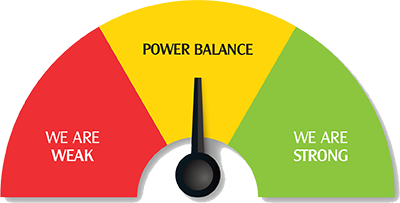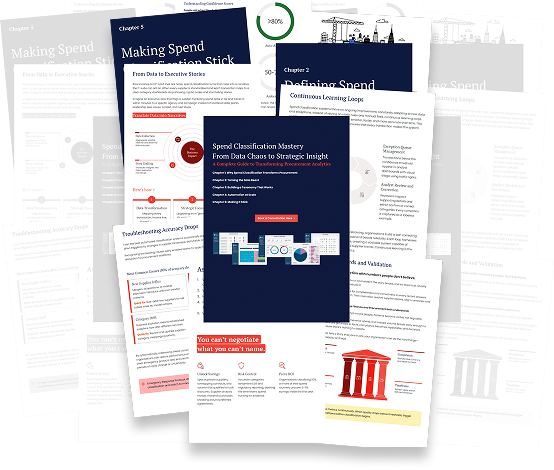
Purchase
Negotiation & Auctions
Helping your Purchase lead
negotiator in offline
and online solutions.
Bring in a Lead Negotiator
Gain goal clarity, find shared interests and build greater trust with your suppliers.
As specialists in offline and online negotiations, we use Game Theory and trusted processes to boost your negotiation power.
Ask yourself this:
- Are you seeking to reduce costs?
- Do you want to increase your speed to do so?
- Do you want to see overall results, faster?
We will:
- Provide strategic guidance during the negotiation and development of documentation
- Develop creative solutions and persuasive arguments to overcome barriers and obstacles
- Assess important factors like the structure of the supply base, the market and its pricing, together with switching costs and your savings opportunities.
Your lead negotiator will help you to exercise considerable independent judgment when evaluating results to achieve the best strategy and solution.

Get your Complimentary Category Strategy Tool!

Sign-up here and you will receive it
by email a few minutes later.
No strings attached.
Procurement Consulting Services

Negotiating & Auctions
Your Local Leading Procurement Consultants
As Australian-based procurement consultants with national reach, we understand the nuances of local industries and government procurement requirements alike.

Government
organisations
View here >>
Publicly listed
companies
View here >>
Not-for-profit
organisations
View here >>
Privately owned
business
View here >>Procurement: Thought Leadership
From our collaborators who love open source thinking and participation.
Blog >
Maverick Spend Management: A Tactical Guide to 11 Stakeholder Archetypes
You’ve read the framework (See part 1). You understand the relationship-process matrix. You know where your team sits on the spectrum. But here’s the thing about frameworks: they’re excellent for diagnosis, less useful when someone from sales is standing in your office at 4:47pm on Friday demanding you set up…
Read more.

How Procurement Leaders Use Data to Shape Strategy
Does procurement have a credibility problem? And if so, why? Most procurement functions deliver significant, measurable impact. Thus, it’s not because it lacks value. The problem is communication. Too often, procurement speaks in operational language to an audience that thinks in strategic terms. It reports activity when executives want outcomes….
Read more.

How Do You Handle Internal Stakeholders Who Bypass Procurement?
If you’ve worked in procurement for more than a week, you’ve lived this scene: A department urgently needs something. They’ve already spoken to the supplier, negotiated terms, maybe even shaken hands on it. Then, almost as an afterthought, they come to you. Not for advice. Not for strategy. Just to…
Read more.

The Single Front Door: Operational Orchestration That Frees Procurement for Value
Why Procurement Can’t Scale Simple Purchases Most procurement leaders feel the same pressure from two directions at once. From the business: “Make it easy. Make it fast. Don’t slow us down.” From governance: “Keep us compliant. Protect budgets. Reduce risk. Make suppliers perform.” The result is predictable: procurement becomes the…
Read more.
Frequently Asked Questions
-
How do procurement professionals improve supplier negotiations?
Effective supplier negotiation is not just about price — it’s about creating sustainable value across cost, cash, risk, and innovation. Procurement professionals improve negotiations through:
- Market & Cost Intelligence – Leveraging should-cost models, benchmarking, and predictive analytics to anchor negotiations in facts, not assumptions.
- Total Cost of Ownership (TCO) – Looking beyond unit price to logistics, quality, service, risk, and lifecycle costs.
- Cross-Functional Preparation – Engaging finance, operations, and engineering to ensure alignment on priorities and trade-offs.
- Balanced Negotiation Styles – Knowing when to apply competitive pressure and when to foster collaboration, based on supplier segmentation and strategic importance.
- Multi-Variable Optimisation – Negotiating across terms, SLAs, ESG commitments, innovation roadmaps, payment terms, and risk-sharing, not just price.
- Alternatives & BATNA – Maintaining viable options, dual sourcing, or substitutes to avoid dependency.
- ESG & Compliance Embedding – Building sustainability, diversity, and compliance clauses into contracts.
- Post-Deal Governance – Documenting agreements, setting KPIs, and tracking delivery through supplier performance management.
The best negotiators treat the process as value engineering, not haggling — ensuring outcomes deliver for the business today while building stronger supplier partnerships for tomorrow.
Comprara strengthens negotiation outcomes by combining data-driven insights from Purchasing Index with negotiation training and capability building through the Academy of Procurement.
-
What are e-auctions, and how do they benefit procurement?
E-auctions are digital, real-time bidding events where pre-qualified suppliers compete under structured rules. They can unlock significant value when applied to the right categories.
Key benefits include:
- Transparent Price Discovery – Competitive dynamics reveal the true market price, reducing opacity.
- Speed & Efficiency – Weeks of negotiation compressed into a few hours.
- Cost Savings – Competitive tension typically drives 5–25% reductions, depending on category and market conditions.
- Global Reach – Enabling participation from suppliers worldwide, expanding the competitive base.
- Auditability & Compliance – Digital platforms provide a complete, traceable record of bids and outcomes.
- Fair Competition – Level playing field for smaller suppliers to challenge incumbents.
However, auctions are not universal. They work best for commoditised, well-specified categories where competition is strong. For strategic or innovation-led partnerships, collaborative negotiation remains superior.
Comprara helps organisations apply e-auctions effectively — from selecting the right categories to running fair, transparent events that deliver measurable value.
-
How does strategic negotiation help reduce business costs?
Strategic negotiation focuses on restructuring cost drivers across the value chain — not just securing short-term price cuts. It reduces costs through:
- Total Cost Optimisation – Addressing logistics, inventory, defect rates, and admin waste, not only prices.
- Long-Term Value Creation – Embedding continuous improvement, innovation pipelines, and efficiency gains into contracts.
- Risk Allocation – Assigning risks (e.g., commodity volatility, logistics delays) to the party best able to manage them.
- Volume & Portfolio Leverage – Consolidating spend across units, categories, or timeframes to unlock scale economies.
- Payment & Working Capital Optimisation – Negotiating terms, early-payment discounts, or SCF to improve liquidity.
- Right-Sising Service Levels – Avoiding over-specification that adds cost, while protecting mission-critical performance.
- Innovation & ESG Incentives – Rewarding suppliers for cost-saving ideas, carbon reduction, or process improvements.
- Performance-Based Contracting – Aligning incentives with measurable outcomes to drive accountability.
This approach makes procurement a value architect, ensuring contracts deliver sustainable cost advantages, resilience, and growth.
Comprara supports strategic negotiations by combining advisory expertise with data from Purchasing Index, enabling organisations to capture sustainable cost and value improvements.
-
What factors should companies consider before supplier auctions?
E-auctions can be powerful — but only when applied with discipline. Companies should weigh:
- Market Competitiveness – Works best where multiple qualified suppliers exist; ineffective in monopolistic or highly concentrated markets.
- Specification Clarity – Products or services must be standardised and objectively comparable.
- Category Suitability – Commoditised goods and services fit; highly customised, strategic, or innovation-heavy categories do not.
- Supplier Readiness – Vendors need technical capability and training to participate confidently.
- Stakeholder Alignment – Internal customers must support auctions and trust the process.
- Relationship Implications – Overuse can damage trust with strategic partners; use selectively.
- Auction Design – Reverse, Dutch, ranked, or multi-attribute formats chosen to fit objectives (price vs. quality vs. ESG).
- Value & Timing – Preparation effort justified for high-value, high-volume categories; market timing (volatility, capacity) matters.
- Compliance & Regulation – Must align with sector-specific rules (public procurement, trade laws).
When used selectively, with strong pre-qualification and thoughtful design, auctions provide a surgical tool for price transparency and efficiency — complementing, not replacing, broader sourcing strategies.
Comprara provides advisory support on when and how to use e-auctions, ensuring they complement broader sourcing strategies rather than undermine supplier relationships.
Comprara acknowledges the traditional Aboriginal owners of country, recognises their continuing connection to land, water and community and pays respect to Elders past, present and future.














